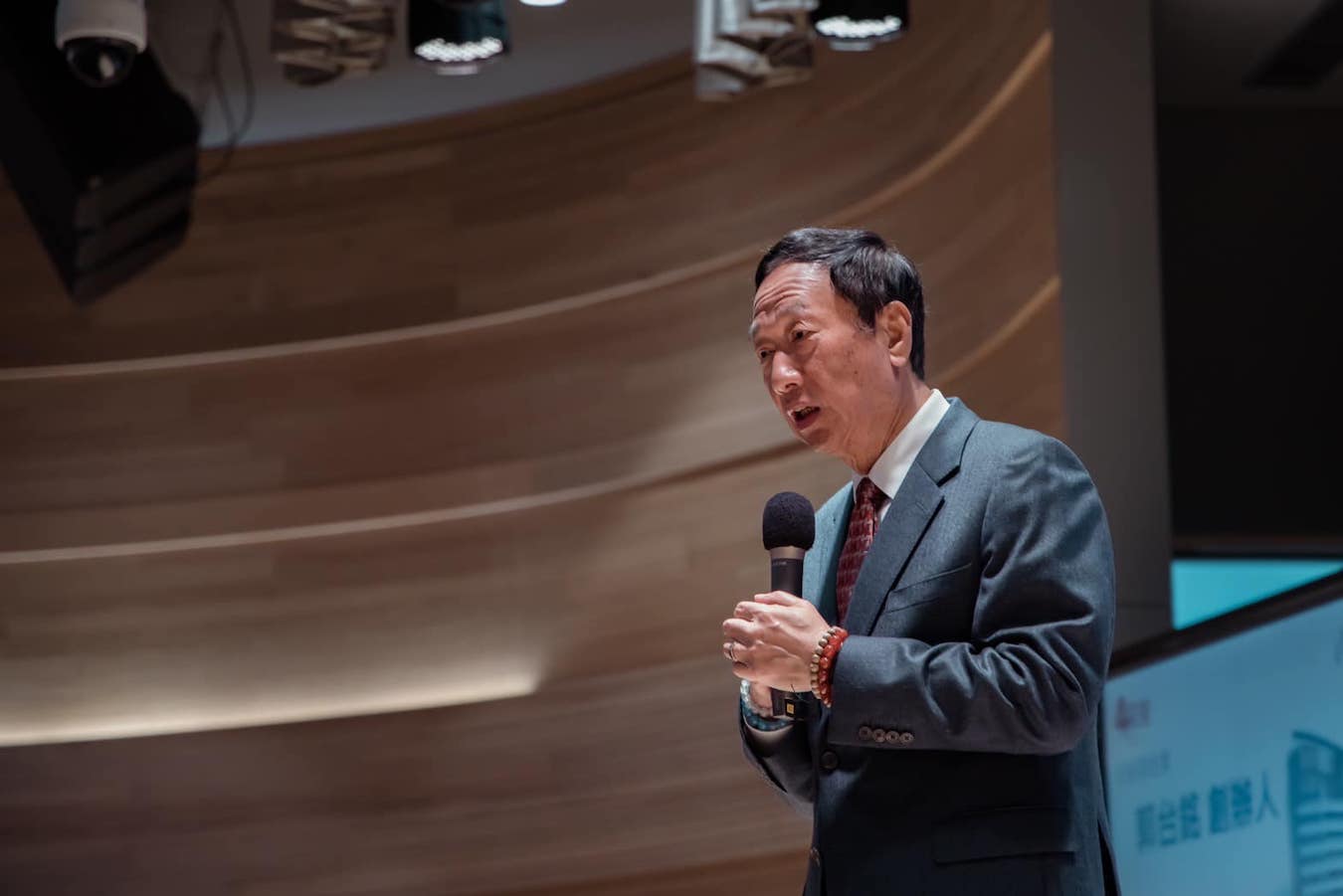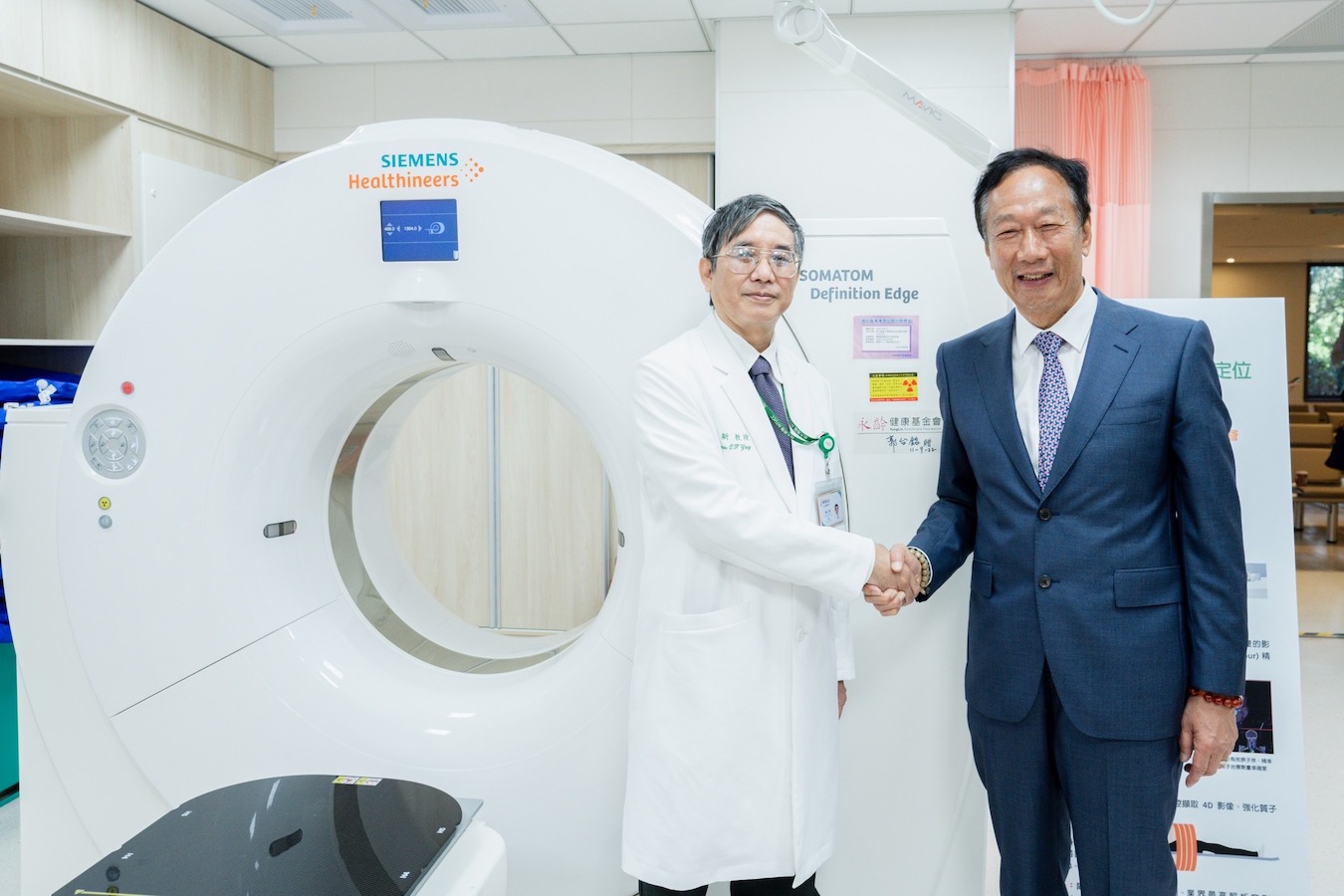by Brian Hioe
語言:
English
Photo Credit: Terry Gou/Facebook
FOXCONN FOUNDER Terry Gou has recently begun publicly criticizing the Central Epidemic Command Center (CECC) that coordinates Taiwan’s COVID-19 strategy over its apparent failure to purchase BioNTech vaccines. Instead, Taiwan is primarily depending on the next-generation Moderna bivalent vaccines for its next round of vaccinating the population against COVID-19.
Gou has leaned into these attacks because of his previous role facilitating purchases of BioNTech. At a time in which Taiwan was struggling with its lack of access to vaccines, given that vaccine access was limited primarily to large first-world countries during this period, Gou sought to upstage the Tsai administration. This would be by negotiating vaccine purchases directly with German vaccine developer BioNTech.
 FoxConn founder Terry Gou. Photo credit: Terry Gou/Facebook
FoxConn founder Terry Gou. Photo credit: Terry Gou/Facebook
Gou was aiming to make the Tsai administration look bad, by being able to negotiate vaccine purchases of BioNTech where the Tsai administration was not. Namely, while Taiwan eventually obtained vaccines through donations from the US, these were AstraZeneca vaccines. The Tsai administration, too, expedited the development of domestically-produced Medigen. The pan-Blue camp leaned into attacks on the Tsai administration that framed AstraZeneca as dangerous, leading to blood clots, and suggested that Medigen vaccines were similarly dangerous.
Subsequently, there followed much back-and-forth between Gou and the government about whether Gou could provide the required documentation for vaccine purchases. Vaccine manufacturers normally only negotiate with national governments. In the end, the vaccine purchase could occur because the Tsai administration authorized Gou’s Yonglin Foundation to carry out the vaccine purchase. TSMC and the Tzu Chi Buddhist organizations were also authorized to negotiate on Taiwan’s behalf. It is sometimes thought that TSMC was added to the purchase so that the purchase of BioNTech vaccines would not appear to slant too much toward the pan-Blue camp.
Some questions remain about the role of BioNTech’s Asia market distributor, Shanghai Fosun, and whether it sought to interfere in efforts by Taiwan to purchase vaccines. The CECC suggested that Shanghai Fosun tried to interfere with the vaccine purchase at the Chinese government’s behest. In response to concerns that China might try to pass off less effective Chinese-manufactured vaccines as BioNTech, Gou stated that he would directly purchase vaccines shipped from Germany.
Minister of Health Hsueh Jui-yuan has criticized Gou, stating that Gou was acting as though he were a salesman for BioNTech. As if to tout close ties with Gou, BioNTech recently announced it will be cooperating on developing cancer treatment with Gou’s Yonglin Foundation.
CECC head Victor Wang has suggested that Shanghai Fosun tried to interfere in attempts by Taiwan to purchase BioNTech, and urged BioNTech that it could, like Moderna, establish an office in Taiwan to facilitate direct purchases.
Likewise, Wang has commented that recent statements from Shanghai Fosun that it would provide its next-generation vaccine to Taiwan were odd. There is no vaccine purchase agreement between the CECC and Shanghai Fosun for 30 million vaccines, but 22 million vaccines have already been delivered either way, and any future purchase would require a new contract.
 Photo credit: Terry Gou/Facebook
Photo credit: Terry Gou/Facebook
It is to be seen whether the Chinese government is attempting to interfere with Taiwanese politics by using vaccines in some way, which Wang seems to be suggesting. Likewise, it is to be questioned why Terry Gou is leaning into the issue at this juncture.
It is generally thought that Gou negotiating the purchase of BioNTech vaccines was with the aim of securing BioNTech purchases as a political victory, which he could use as leverage in a future presidential run. Gou has harbored presidential ambitions for quite some time, throwing his hat into the race for the KMT’s 2020 presidential election, but making moves aimed at consolidating his position for a presidential run for over a decade.
It is possible that Gou also hopes to run in 2024. Gou may again seek the KMT’s presidential nomination, potentially clashing with New Taipei mayor Hou You-yi and current chair Eric Chu, as well as other contenders such as former Kaohsiung mayor Han Kuo-yu. Or it is possible that Gou will run as a pan-Blue independent, potentially aligning with Taipei mayor Ko Wen-je, James Soong of the PFP, or other political actors. Ann Kao of Ko’s TPP, who won the mayoral race in Hsinchu in November, is closely aligned with Gou–even moreso than with ko. As such, it is unclear if Gou seeking to attack the Tsai administration over BioNTech is with any political aim in mind, such as competing in an upcoming election. This is to be seen.

